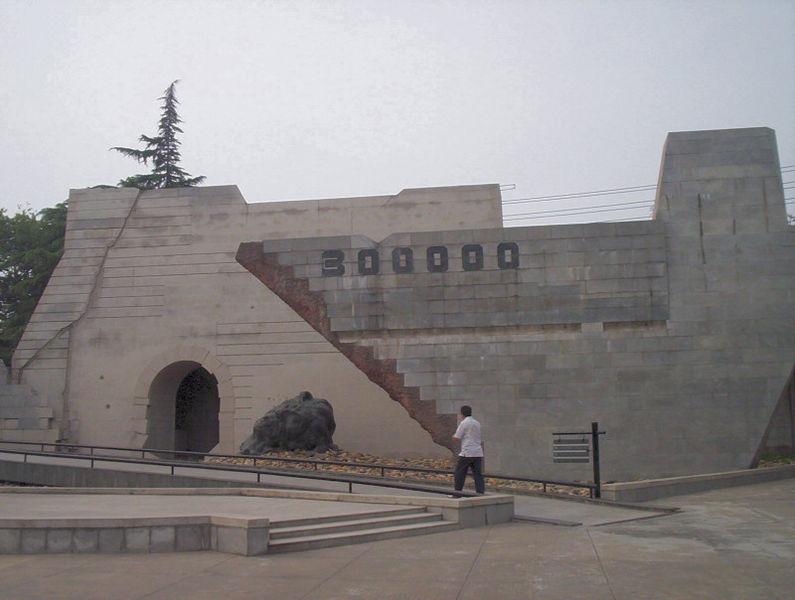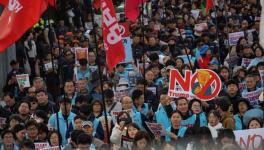Painful Past: China Observes 80th Anniversary of Nanjing Massacre

On December 13, 2017 China observed the 80th Anniversary of the Nanjing Massacre, a sordid episode in Imperial Japan’s history and a source of pain and resentment against Japan for Chinese people around the world. In a speech delivered at the ceremony, Yu Zhensheng, the chairman of the National Committee of the Chinese People’s Political Consultative Conference and a leader of the Communist Party of China referred to Japan’s atrocities in other countries during the Second World War, like the Manila massacre (1945), the Bataan Death March (1942) in the Philippines and the Thai-Burma railway construction (1942-43).
Whether this is a bid to project Chinese ‘soft-power’ or to undermine the efforts of the ‘Quad’ (a grouping of India, Australia, Japan, and the United States of America) is yet to be seen. Yu in the same address mentioned that “China and Japan must act on the basis of both their people's basic interests, correctly grasp the broad direction of peaceful and friendly cooperation, take history as a mirror, face the future and pass on friendship down the generations”.
The ceremony was also attended by President Xi Jinping, who did not speak but stood in the audience. This is the second time he has attended the ceremony since the first memorial day was held in 2014.
The Nanjing Massacre, or as the press at the time called it, “The Rape of Nanking”, was a deeply shameful episode in China’s history. In December 1937 the nationalist forces led by Chiang Kai-shek’s Kuomintang were pushed back by the forces of Imperial Japan during the early months of the Sino-Japanese War of 1937-1945. Nanking at the time was the capital of the Republic of China. The general in charge of defending the city ‘to the death’ was Tang Shengzhi. He abandoned his post one day earlier, slipping away in a small boat even as the unguarded city apprehensively waited for the conquering Japanese forces to arrive. The Japanese forces went on a six-week rampage of rape, arson, torture and murder.
Chinese sources place the death toll at 300,000. Foreign academics place the death toll at 42,000 and 20,000 women raped during the carnage, and a postwar Allied tribunal came to a figure of 142,000. Japan’s official position on the other hand, admits to the death of ‘a large number of non-combatants’ while at the same time mentioning that it is difficult to determine the ‘correct number’ of victims. Numbers aside, what nobody can deny is that the massacre took place.
During the early Cold War years, China downplayed Japanese wartime atrocities and instead focused on consolidating Communist rule in China. During the 1970s and the 1980s China received significant Japanese developmental assistance. Towards the latter half of the 1980s Chinese policy shifted to finding common ground with ‘Taiwan’ or ‘The Republic of China’, in their shared experience of fighting the Japanese forces during the Sino-Japanese War. Chiang Kai-shek and Mao had reached an agreement in 1937 that the Communist forces and the Kuomintang’s forces would cooperate in a collective effort to push back the Japanese forces.
In 1985 the memorial to the Nanjing Massacre was built. China has since then, repeatedly objected to visits by Japanese lawmakers to the Yasukuni Shrine, which is a memorial to all those who died in the service of the Emperor, including several war criminals who committed atrocities in China and Korea. These visits have also caused outrage in South Korea, another country affected by Imperial Japan’s war machine. Japanese Prime Minister Shinzo Abe in 2013 visited the shrine and made an offering souring Sino-Japanese ties. As a compromise, Abe promised not to personally visit the shrine. However in 2017 China once again raised objections to Abe sending an offering though not personally visiting the site.
Until Japan can come clean on its past in a way like that of Germany regarding its Nazi past, painful memories can always be invoked to undermine its foreign policy. Britain is currently facing a similar situation, with calls for Britain to formally face up to its colonial past.
Get the latest reports & analysis with people's perspective on Protests, movements & deep analytical videos, discussions of the current affairs in your Telegram app. Subscribe to NewsClick's Telegram channel & get Real-Time updates on stories, as they get published on our website.
























